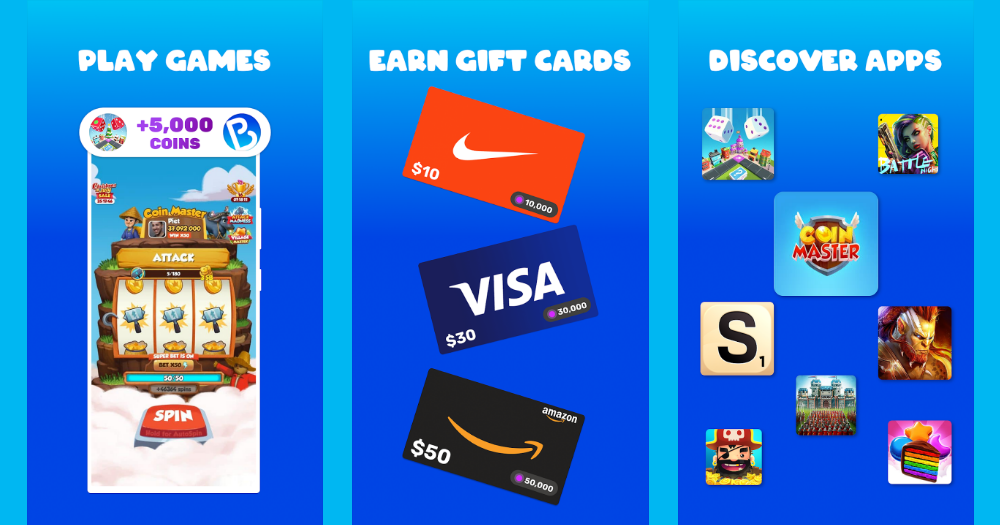How Play-to-Earn Games Are Transforming the Gaming Industry

Recognizing Play-to-Earn Mechanics
The play-to-earn design has actually emerged as an innovative concept within the pc gaming industry, essentially modifying the relationship between players and the video games they engage with. This model enables players to gain tangible rewards, commonly in the type of cryptocurrencies or non-fungible tokens (NFTs), through their in-game activities. Unlike conventional pc gaming frameworks that usually monetize with subscription charges or one-time purchases, play-to-earn video games incentivize player participation by straight linking gameplay success to real-world worth.
At the core of play-to-earn technicians is the combination of blockchain innovation, which ensures openness and provable possession of in-game properties. Gamers can purchase, market, or trade these assets in decentralized marketplaces, empowering them with financial company formerly hidden in conventional video gaming settings. Each gamer's payment to the video game community-- be it through skillful play, critical trading, or neighborhood involvement-- boosts the overall pc gaming experience while providing them an opportunity to produce earnings.
As players invest time and sources, they not only deepen their engagement with the video game yet additionally foster a dynamic economic situation that mirrors their cumulative efforts (play and earn rewards). This change of gameplay right into a monetizable endeavor is improving both gamer motivation and video game design
Financial Influence on Players

Moreover, play-to-earn versions democratize accessibility to economic benefits. Players from differing socio-economic histories can participate and possibly gain considerable revenue, bridging gaps that exist in conventional work markets. This standard change promotes economic self-reliance, specifically in regions where job opportunity may be limited.
Furthermore, the intro of online economic climates permits players to build riches via critical investments in in-game properties, which can value in time. This has actually led to the development of a new class of players who come close to play-to-earn as a serious income-generating activity, typically resulting in the reinvestment of revenues into the pc gaming environment itself. Eventually, the financial influence on players is profound, as they navigate a landscape where leisure and income assemble.
The Duty of Blockchain Innovation
What makes blockchain modern technology a foundation of play-to-earn games is its ability to offer decentralization, security, and openness. By making use of a distributed ledger system, blockchain guarantees that all purchases within the game are tape-recorded in an unalterable fashion, enabling gamers to verify possession of in-game properties without relying upon a central authority. This transparency promotes trust among gamers, as they can separately verify the deficiency and provenance of electronic products, enhancing their worth.
Furthermore, blockchain innovation encourages gamers with decentralization, enabling them to engage in peer-to-peer transactions. Players are no longer confined to in-game economic situations managed by designers; instead, they can trade, market, or lease their possessions freely in open industries. This shift not just increases the general liquidity of electronic properties but additionally urges more purposeful player interaction, as customers can straight benefit from their effort and time purchased the video game.
Additionally, blockchain helps with the production of clever contracts, which automate different in-game processes, from rewards distribution to administration devices. play and earn rewards. This innovation minimizes the threat of scams and ensures fair game, additional solidifying blockchain's essential duty in the development of play-to-earn video gaming
Objections and difficulties
Often, play-to-earn games deal with significant challenges and criticisms that can prevent their growth and approval within the wider pc gaming area. One key worry is the capacity for a speculative bubble, where the value of in-game possessions can fluctuate significantly, bring about monetary losses for gamers. This volatility undermines the security that traditional video gaming environments generally provide.
Moreover, the assimilation of blockchain technology commonly raises inquiries about ecological sustainability. The power usage connected with particular blockchain networks has actually triggered discussions concerning the ecological influence of these anonymous video games. Critics say that the carbon footprint created by play-to-earn systems might discourage eco-conscious gamers.
In addition, there are issues about availability and inclusivity. Lots of play-to-earn video games require gamers to invest significant upfront funding to get necessary properties, developing barriers for those with limited monetary sources. This version can accidentally develop a divide in between wealthier gamers and those that can not afford to get involved.
Future Patterns in Gaming
As the gaming industry remains to progress, several future fads are emerging that guarantee to improve the landscape of play-to-earn games and past. One considerable pattern is the boosting combination of blockchain innovation, which improves transparency and safety and security in transactions. This will likely cause higher trust fund among players, motivating bigger fostering of play-to-earn designs.
Additionally, the surge of non-fungible tokens (NFTs) is set to transform electronic possession, enabling players to truly own in-game assets. This shift will certainly not just empower gamers but likewise create brand-new financial possibilities within the digital ecosystem. The merging of video gaming with various other click this link fields, such as social media and decentralized money (DeFi), is anticipated to foster cutting-edge gameplay mechanics and monetization methods.
Additionally, advancements in man-made knowledge and device knowing will make it possible for much more individualized pc gaming experiences, satisfying individual player preferences and improving interaction. The growing emphasis on community-driven advancement will likely affect game layout, as gamers progressively participate in shaping their gaming environments. Jointly, these patterns show a transformative future for the video gaming industry, where play-to-earn models will certainly play a main duty in redefining player communication and value creation.
Final Thought
To conclude, play-to-earn games stand for a considerable shift in the pc gaming sector, cultivating economic possibilities with innovative auto mechanics that leverage blockchain modern technology. This model not just democratizes accessibility to financial benefits for gamers from different socio-economic histories however likewise urges area involvement and empowerment. Regardless of encountering objections and obstacles, the capacity for future improvements recommends that play-to-earn video games will certainly proceed to shape the pc gaming landscape, providing new opportunities for wealth development and gamer involvement.
The introduction of play-to-earn games represents a substantial change in the pc gaming industry, reshaping the relationship between gamers and the electronic economic climate (play and earn rewards).The play-to-earn model has actually arised as a revolutionary concept within the gaming market, fundamentally modifying the connection between gamers and the games they engage with. Unlike conventional gaming structures that normally generate income from via registration charges or one-time acquisitions, play-to-earn video games incentivize gamer engagement by straight connecting gameplay accomplishments to real-world worth
These cutting-edge gaming platforms equip gamers click here for more info to create real-world revenue through their in-game tasks, thus transforming the conventional idea of gaming from a mere pastime right into a practical financial chance. In spite of dealing with challenges and criticisms, the potential for future developments suggests that play-to-earn games will certainly continue to form the gaming landscape, offering brand-new opportunities for wealth creation and gamer participation.